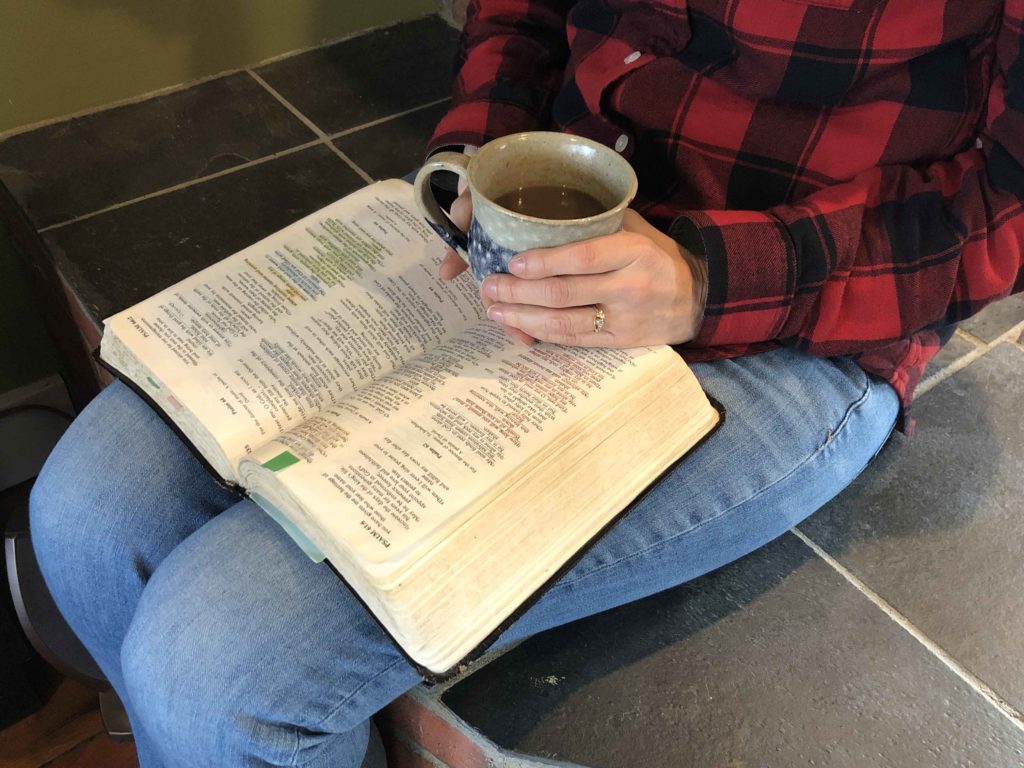In a world of haters and extremists, divisive politics, and walls, gun violence and terrorism, intolerance and road rage, how can I love my neighbour? Is this even practical? Is it safe? What is love supposed to look like? And who is my neighbour, anyway?
If we think that these questions are new to our political climate, we must think again. Jesus was asked these very same questions.
But what is the primary question that prompted these secondary questions? On several occasions, Jesus was asked, “Which is the greatest commandment?”
Jesus replied, “‘You must love the LORD your God with all your heart, all your soul, and all your mind.’ This is the first and greatest commandment. A second is equally important: ‘Love your neighbour as yourself.’ The entire law and all the demands of the prophets are based on these two commandments.” [1]
Who’s a Liar?
It’s interesting that the entire law and demands of the prophets hinge on these two commandments. How many times do the New Testament writers repeat the command, “Love one another…”
According to Jesus, this single directive is more important than the entire sacrificial system of the Old Testament. Jesus’ friend John said, “Whoever claims to love God yet hates a brother or sister is a liar. For whoever does not love their brother and sister, whom they have seen, cannot love God, whom they have not seen.” [2]
That’s some pretty strong language!
Now, we can glibly say, “Yeah, I love God. I love my neighbour as myself.” And move right along serving and giving.
Or, we can look at the relationships in our lives. The hard ones. The conflicted ones. The relationships in our families, workplaces, the church. And if we’re all doing such a great job of loving one another, why are there so many broken relationships?
Many of us conclude, “I can love God. He’s easy to love. After all, he has my best interest at heart, he loves perfectly… who couldn’t love God?” And yet, according to John and Jesus, we can’t actually separate loving God from loving the difficult people.
Who are the difficult people? The haters. The politicians in the other camp. The people who disrespect us. The rude drivers. The self serving bosses and leaders in the church. The difficult people a little closer to home are colleagues and friends who make judgemental statements. And right at the inner circle are the spouses, kids, friends, parents, and siblings who irritate us. Or break our hearts.
I don’t know how it is for you, but I have a lot of conflict in my history. Through the years, I’ve encountered plenty of hard to love personalities. I thought about waiting until all my relationships are functioning in perfect love, but then this could never be written. Unresolved conflict bothers me a lot, which is why I feel the need to wrestle through this topic. I’m really trying to love my people better.

Because the way I love is more important to God than anything I do.
Or say.
Or write.
Love Yourself
If I can’t love God without loving other people, and I’m supposed to love people as I love myself, how then do I love myself? If I don’t love myself well, I won’t love my people well. We could start anywhere in this circle, but I’ve decided to start with the question, “How well do I love myself?
What do the voices in my head say about me? Is my self talk gentle or harsh? Am I exacting or generous with myself? Do I condemn or forgive myself?
A few years ago, I realized that my head was a noisy place, and the voices in my head were harsh. Phrases like…
“What’s wrong with you?”
“How could you be so stupid?”
“Why didn’t you get more done today?”
“You’re such a failure.”
It seems I had found myself at the top of “The Difficult People” list. This harsh self-talk not only clouded my view of myself, it impacted my perception of the people around me. With a steady stream of mental flogging, I would then compare myself to others.
Why can’t you be more like_______? I would compare my weaknesses to a friend’s strengths.
Eventually, I would reverse it, and compare my strengths to her weaknesses. The result? We both lost and I didn’t love anyone well. Relationships were fragile at best and fractured at worst.
The result was swirling negativity, misery, a sense of failure and frustration. Broken relationship with myself resulted in broken relationship with people close to me. I wasn’t loving myself; therefore, I couldn’t love my people well.
If I condemn my weaknesses, I’ll criticize the weaknesses of those around me. If I don’t love myself, I’ll assume that other people don’t love me either. In fact, I’ll assume that other people see me the same way I see myself.
If I don’t like myself, I’m far more prone to sabotage intimacy with jealousy.
If I don’t love myself, I can’t be honest about my weaknesses, I’ll have to conceal them and/or project them onto others.
We are all flawed human beings; therefore, we will have flawed relationships. But, if I can love myself, flaws included, I’m able to love you with your flaws.
So what’s the antidote? How can I love myself better?
When I became aware of how prolific the destructive voices were in my head space, I began to search out what God thinks of me. I searched for his love like hidden treasure.
Unexpected Treasure
My search reminded me that I am created in the image of God, therefore I am loveable. If a perfect, flawless, powerful God decided that I’m worth dying for, then I’m valuable. I am treasured.
In fact, according to the apostle Paul, God considers me as part of his inheritance. “I pray that the eyes of your heart may be enlightened in order that you may know the hope to which he has called you, the riches of his glorious inheritance in his holy people.”[3]
This is astonishing!
It’s one thing for God to promise me an inheritance. This in itself is astounding, if you think about it. The King of heaven has made me his heir. However, as a child adopted into God’s family, this is the natural order of things. After all, he’s the father, and I’m his child, and he gives me good things.
But that he considers me – broken, flawed, mistaken me to be HIS inheritance?
This is staggering!
Jesus told the story of a man who found treasure in a field, hid it, sold everything he had, and then bought the field, so that he could legally own the treasure.[4] Usually, we interpret this story to mean that I’m the person who found the treasure. The treasure is the good news of God’s love, the gift of adoption into God’s family. I let go of everything to make space to receive this good news. And this is true.
Yet, could there be another side to this gem? Could God be the man who found the treasure? Could God be the one who gave all he had, all he valued, his one and only son, to purchase the field with the treasure? Could we be the hidden treasure? [5] This interpretation may sound preposterous at first glance, but wouldn’t this fit within the theme of inheritance? If we are God’s inheritance, then we are his treasure.
This is wreckless love! Scandalous love!
Invitation to Intimacy
God’s love is more than just distant and general! God’s affection is personal, relational. Paul writes to the Ephesian Christians, “But God is so rich in mercy, and he loved us so much…he raised us from the dead along with Christ and seated us with him in the heavenly realms because we are united with Christ Jesus.” [6]
This truth came home to me one day as I was anticipating having coffee with a friend. I was so excited to have her come over. I respected and admired her, and knew she had a full life with little time for socializing. Frankly, I was honoured that she had created space to spend a few hours with me.
The morning I was anticipating our coffee date, I read these words, “… [Christ] seated us with him in the heavenly realms.”

While I was delighted that a friend had chosen to share her morning with me, to sit with me, to talk and listen with me, it struck me that the Creator of the Universe, the High King of heaven, had chosen to offer me a seat in the heavenly realms. He is never too busy to meet with me. And, if that isn’t enough, he is delighted each and everyday I choose to make space to talk and listen with him!
Astounding!
I’m that important to the greatest teacher who ever lived.
I’m loved.
I matter.
But not because of anything I’ve ever done. Paul makes that very clear. “But because of his great love for us, God, who is rich in mercy, made us alive with Christ even when we were dead in transgressions—it is by grace you have been saved.”
I’m invited to a daily coffee date with the Creator of the Universe. The one who hung the stars in space welcomes me to greater intimacy. He sings love songs over me.
“The LORD your God is with you, the Mighty Warrior who saves. He will take great delight in you;in his love he will no longer rebuke you, but will rejoice over you with singing.” [7]
God speaks these beautiful words over his people while they’re rebelling against him. He is wooing his people back to him. He loves them, not because of what they do for him or what they give him, but because he has chosen them.
Likewise, he has chosen to love us, and sings songs of delight over us, despite our imperfection. Like a parent sings songs to her toddlers as they’re going to sleep. No matter how many tantrums the day held, no matter the disobedience, come night time, that mother or dad will hold the children in their arms and sing songs over them.
I’ll love you forever
I’ll like you for always
As long as you’re living
My baby you’ll be.
Robert Munsch [7]
Practicing Love
Knowing God’s astounding, wreckless love for me wasn’t enough. God’s love had to percolate in my soul like crushed coffee beans in boiling water.

I often read these words of love in the morning, and promptly forgot them when coffee was over. I had to practice believing God’s words of love. I needed to practice thinking these new thoughts. God’s thoughts. Thinking God’s thoughts required as much practice as learning piano, or skating or taking shots on a net. I needed time to allow God’s words to steep or percolate in my soul.
I had to practice believing that what God says about me is more true than what I think or what society, or strangers or family say about me. I don’t have to reach a standard of beauty or accomplishment, fitness or education, skill, or even Christian virtue, to be valued. To be worthy of love.
We are profoundly loved by God. When we become secure in his perfect love, we can begin to love ourselves as we are, flaws included. And when we’re secure enough to enjoy ourselves, deficiencies included, we can enjoy our people… imperfections included.
As we view ourselves through God’s loving lens, we are able to acknowledge a person’s strengths without being intimidated or threatened by them. We can recognize someone’s flaws without feeling irritation or contempt.
We can enjoy the diversity of community, loving each other and choosing to focus on the strengths and giftings without denying or magnifying the flaws of our people. We can love our neighbour as ourselves.
Additional Posts on this Theme:
Hygge 3, More than a Piece of Crap
Lauren Daigle, “You Say”
Reading / Sources
[1] Matthew 22:37- 40; [2] 1 John 4:20; [3] Ephesians 1:18; [4] Matthew 13:44; [5] Paul Weresch, Bible Teacher; [6] Ephesians 2:4-9; [7] Zeph 3:17; [8] Robert Munsch,
Scripture References from NIV; Paul Weresch – Bible teacher; Robert Munsch, Love You Forever.
Pondering
- What are the words replaying inside my head?
- Do I hear a tendency to criticize myself or others? If so, why am I so critical?
- Do I sense jealousy rearing its ugly, green head? When and with whom? Why am I jealous of this person or these people? What’s causing the insecurity?
- Choose one passage articulating God’s love. Commit it to memory and practice replacing the negative thoughts in your head. Practice the new thoughts as you shower. Practice as you brush your teeth. Practice as you drive or take transit. Practice when you notice negative emotions and thoughts.
- Thank God for your strengths and for the strengths of one person you struggle with.
